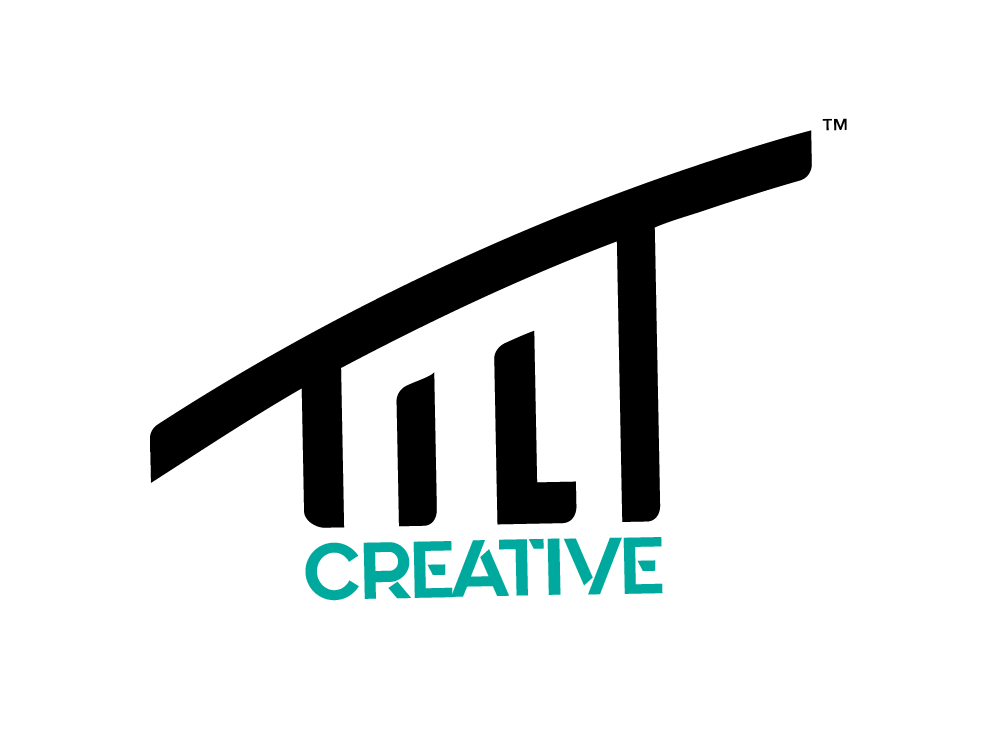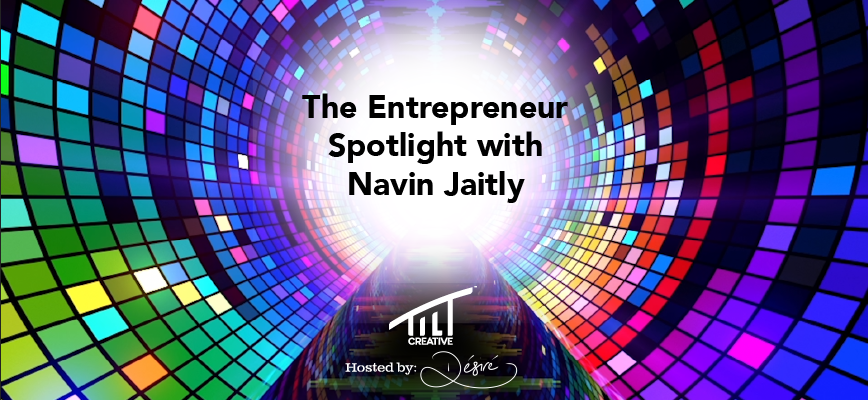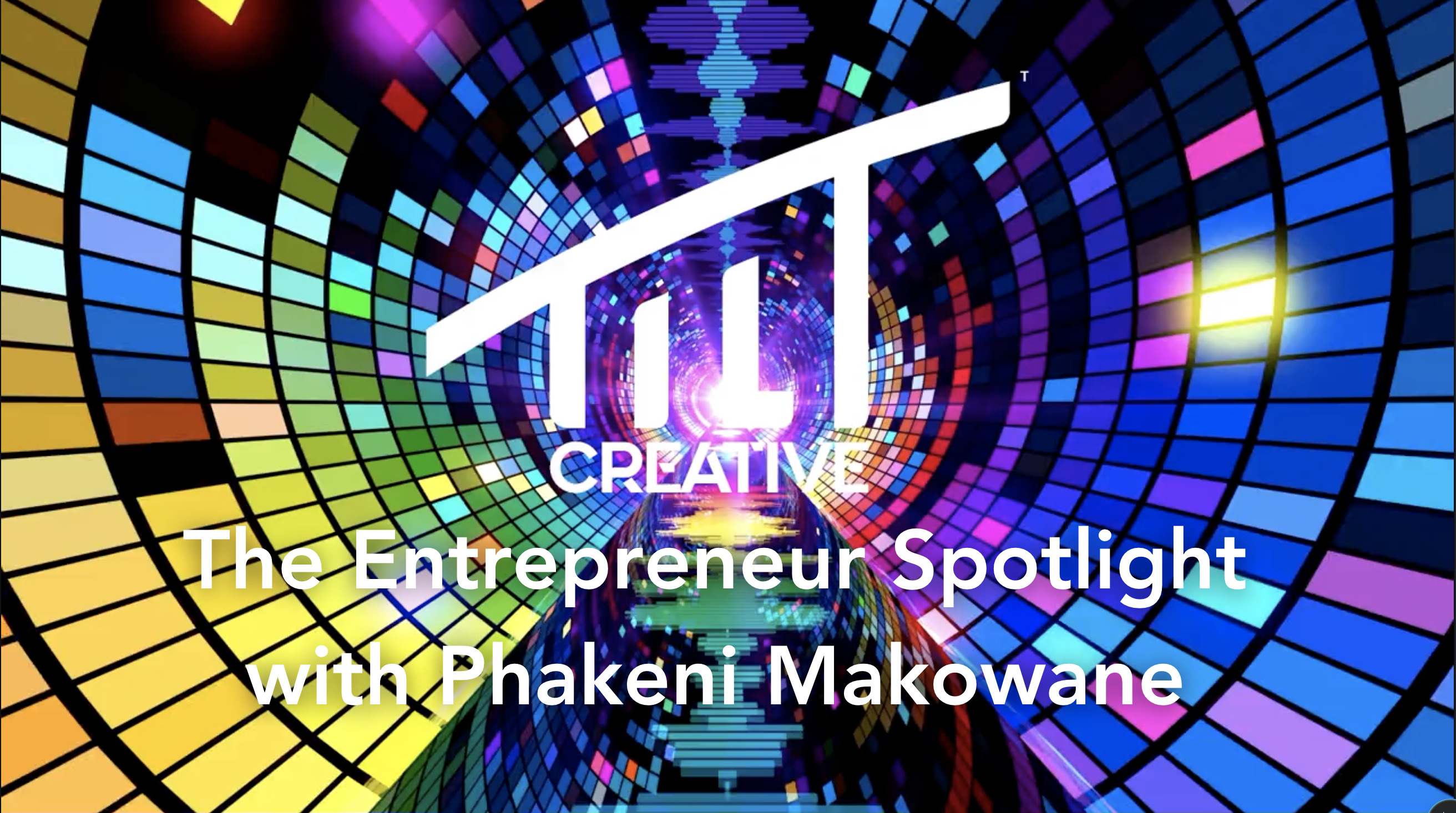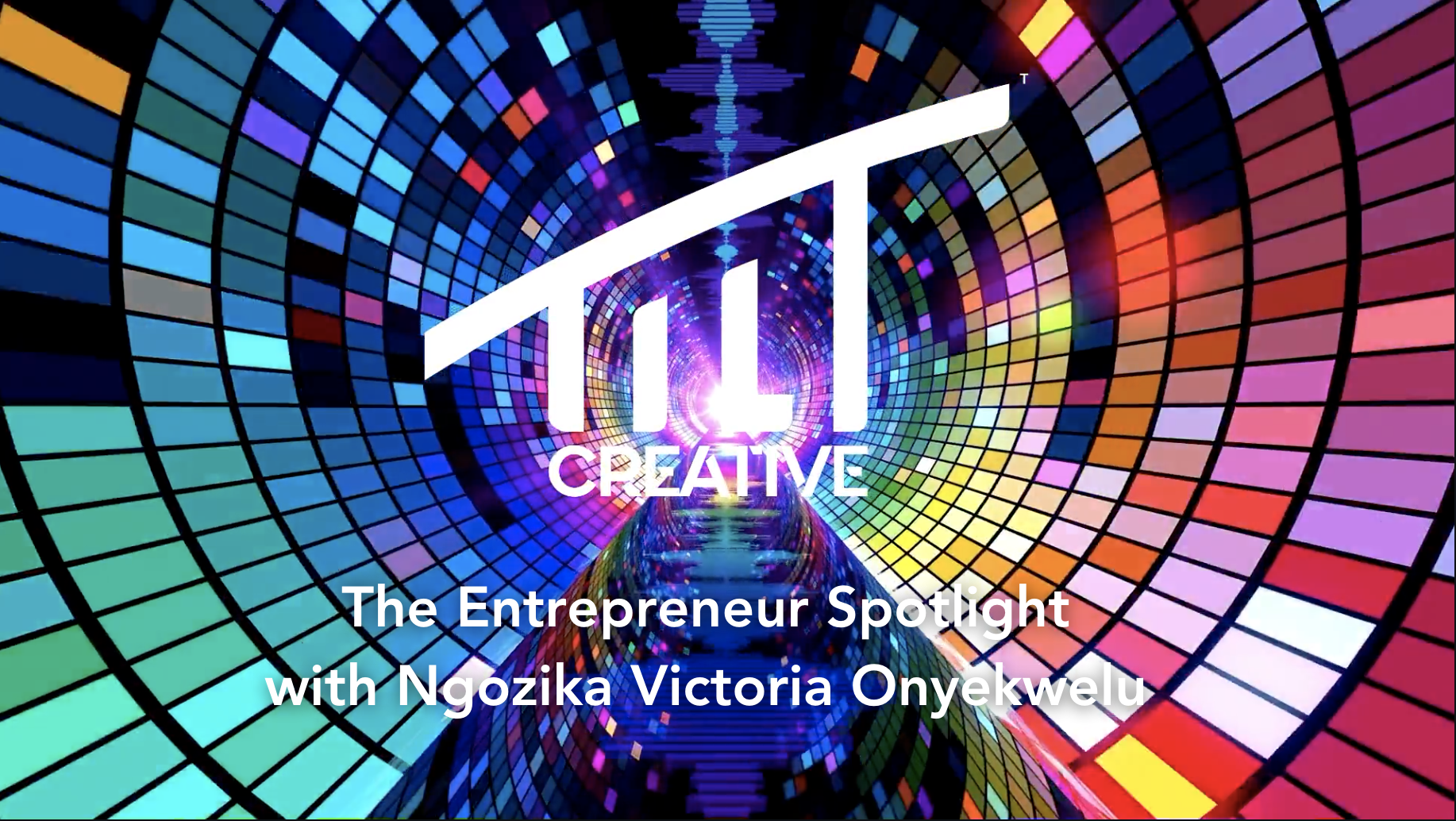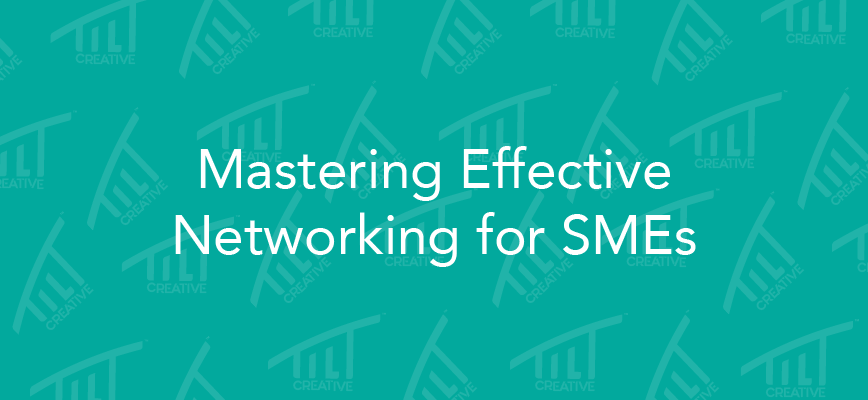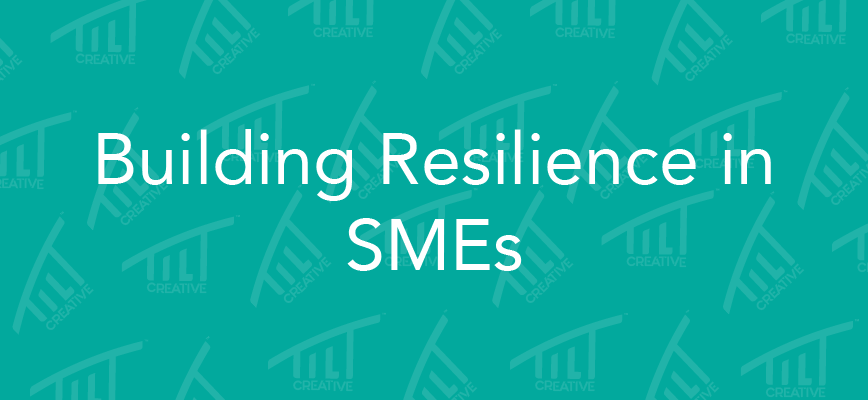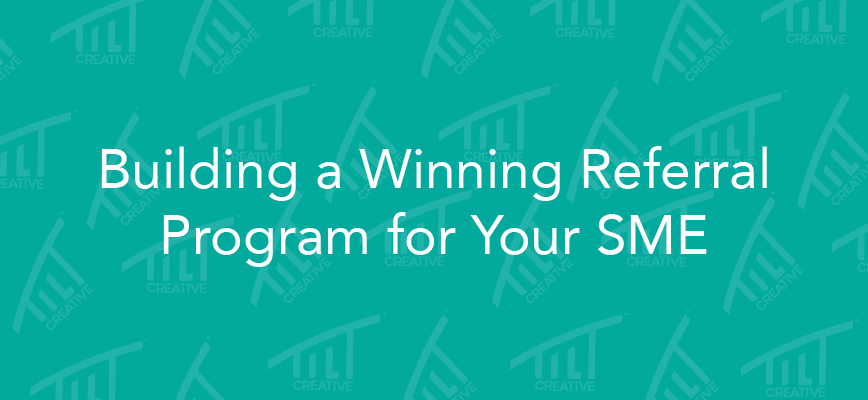Watch the Interview
Transcript
[00:00:00] Désiré: [00:01:00] Thank you so much for coming on the Entrepreneur’s Spotlight today, Navin. it’s absolutely amazing to have you here.
do you want to tell them your name, the name of your company and a little bit about what you do
[00:01:10] Navin: thank you for having me, Désiré . I love doing this sort of thing because I love spreading the word about what I do and how I help
I like to help people and I think having conversations like this can really do that i’m Navin Jaitly and my business is Navin Jaitly Coaching Limited. I work with entrepreneurs and business owners, and if they have teams as well as salespeople, and I work with developing sales.
I teach people how to sell. I develop the company strategy of how to get more sales in. I develop skill set because sales really is like Playing a musical instrument. You have to learn certain skills to play well, right?
and the final thing what I do and i’ll explain a little bit more why I do this afterwards Is I develop people’s mindset around selling and that’s what I call their inner game So I develop a lot of things like their confidence their why, I help them to rewire a lot of their limiting self [00:02:00] belief and their negative subconscious mind programming, whether it comes tothings like money.
Because that’s a lot of the equation that I find a lot of other sales consultants, coaches don’t do. And they focus solely on just the skills and strategies, which are hugely important. But that’s, that’s missing a big part of the equation. So what I do is I work in all three areas. Through various programs and products that I have and ultimately what I do is I help people to sell more.
[00:02:24] Désiré: So I help business owners and sales teams and entrepreneurs to make more money, to make more sales and to make a bigger impact.That’s awesome. So how does your service work?
[00:02:36] Navin: So if you were depending on What kind of company you are, but I have for example individual entrepreneurs like solo entrepreneurs or very small business owners working with me And I have for example a group coaching program that they can join or I do one to one coaching as well And that typically is that we have a conversation I find out their needs I tell them we go to more details about what I do And I’m very, for [00:03:00] me, it’s very important about working with the right people.
Because Désiré , when you’re a coach or consultant, look, we do great things. And I really have made some brilliant results for clients. But there is that whole saying that you can bring the horse to water, but you can’t get it to drink, right? So, yeah. So I do, when I’m interviewing, we have this interview, call it an interview.
And they’re finding out more about me and explaining my services. I’m also trying to find out about them. And one of the things I’m always looking for is, how badly do you want it? How badly do you want to improve your sales, improve yourself, and grow your business? And if there’s a right fit, then people work with me.
I have online programs and courses, which is that you could work without me. You just buy my online product, and it develops your mindset and skillset. Or I have my group coaching program, or like I said, my one to one. If you’re a bit of a bigger organization, you’ve got a sales team, because I work with all the way up to corporate, I have different programs which are more bespoke for that organization.
And that’s when I go in and, I actually train either online or face to face, depending where they are, the team [00:04:00] itself. And what I do is with the business owner or sales leader, we also create a strategy. I can help with things. I’ll give an example. I’m working with a company at the moment who want me to develop a sales strategy for them because they’ve grown to a, multi million pound business, but I could have done it without a sales strategy and now they really want to kick on.
So I developed that. I helped them with creating sales processes. I’m helping them obviously train their team. They’re a team of seven salespeople. So I’m helping to train and coach them on skill set and mindset. And I, what I do is, as I’m very different in the case that I do distinct, there’s a distinction between consulting, training, and coaching.
Yeah, with my service, I do all three. So, there was a part where sometimes I’m just training. Training is about just me passing on skills and saying, this is how you question. This is how you negotiate. This is how you do X, Y, and Z. Or this is how you can rewire your brain to become more confident, etc.
Then there’s the consulting, which is more me giving advice. [00:05:00] And it’s more giving advice and it’s based on what’s worked for me or other companies before and it’s more real world, it’s not so much theory, more real world. And then coaching is actually, I’m a qualified performance coach and that’s really with me working with someone and asking them questions and really getting them to elicit the answers from.
Their own mind. And that’s really powerful because that’s where a lot of change happens. And I find a lot of training out there and mentoring. It’s just stuck at the very superficial level, which is why massive change doesn’t happen. When you embed coaching into it as well, that’s where you can go deeper and you can actually really change people’s performance.
So I use a combination of coaching, training, and mentoring. I have a combination of online programs, group coaching, and one to one coaching. I also have where I’m going to companies to do something a bit more bespoke. And we discuss what that looks like with teams, but like I said, I’m helping anybody who needs to grow business needs to grow and scale their business.
That’s really where I come and help. [00:06:00] [00:06:00] Désiré: It’s interesting that you say that you have a blend of consultation, coaching and training because that’s pretty much what I do. And for a long time, I couldn’t actually define what it was and I couldn’t actually find anybody else who did something similar to that because you’ve got consultants who come in and consult, you’ve got coaches who.
Well, coaching has got a really bad reputation recently. You think about a coach and you’re like, Oh, no, thank you. But, it’s just like you, and then you’ve got mentors, then you’ve got people who do training. So it’s like, try to find somebody who does all of those things all put together in almost in one service.
That’s actually quite rare. So, it is actually quite good that, you do, you almost do the, almost the sales arm of what I do as a brand consultant. that’s why I’ve branded myself the brand maverick, because what I do isn’t really consulting, it isn’t really strategy, it’s everything else.
So, whereas I’m like the brand maverick, you’re like the sales maverick in that sense.
[00:06:55] Navin: Well, I call myself a sales maximizer, because it really is, I’m not only maximizing [00:07:00] your sales results, but I’m maximizing the person or the team’s actual overall sales ability. Which includes mindset, which includes skill set.
I always put it down to, it’s a bit like, it’s a bit of a weird analogy, but it’s a bit like going and sending a soldier into battle, right? And you give them, you send them without a gun, they’re not going to go very far, right? You give them a gun, but they haven’t got the confidence to fire it, they’re not going to go very far.
So sales is a bit like that. You, the skills are like giving, in my analogy, a soldier a gun, right? The mindset is giving them the confidence to fire it. Right? So that’s why you need to work on both aspects. And also, sometimes there is a place for coaching, sometimes there’s a place for training, sometimes there’s a place for consulting.
Sometimes somebody does need an answer, and we can’t spend half a day on asking them loads and loads of questions to get right to the bottom of it. Like, sometimes they just want to know, like, what do we do in this situation? That’s more when they need something they don’t know before. But where coaching comes in, where it could [00:08:00] be, a decision they want to make.
or where they want to change a certain way their mind thinks about things like their relationship with rejection. Now that’s not something you teach or consult someone. That’s where you get the coaching involved. See, where is that rejection? Where’s that coming from? How can we rewire that in your brain?
[00:08:18] Désiré: It’s almost a little bit, especially with that kind of stuff. It’s a little bit likecounseling in that sense, because rejection sensitivity can come from childhood. So you’ll be, unearthing all of that stuff as well.
it is really interesting that you touch all of that stuff because a lot of sales trainers don’t do that. A lot of sales coaches don’t do that. So they get you through the sales process. And they almost do the mindset stuff, but they don’t get into facinG rejection, where is that actually coming from?
A lot of them don’t do that. A lot of them shy away from that. So it is really cool that you’re focusing on that because you’re taking a much deeper level, which will actually help them as individuals as [00:09:00] well. So it’s not even just sales coaching. It’s almost.
Like.
people coaching as well.
[00:09:05] Navin: Well, you say that spot on because ultimately that’s what it is in anything in performance behind any, you look at all the athletes, you look at any fine performing function, it’s a person behind that. So this is what I mean by.
And the reason I was so passionate about it is because I had lots and lots of sales training over the years when I worked In my corporate career and a lot of it, you know after I got to a certain level It wasn’t really much of a game changer for me And I thought what how can I make it? It really changes people’s game and you have to focus on the person But look you have to again know when to do it If i’m training a sales team with 10 people in a room, I might not it might not be the best time to start unearthing something in their childhood because they don’t want to say it in front of people, right?
So, so you’ve got to know when, okay, now this is a training session. Now this is more mentoring. Okay, this person is struggling with this. Maybe this is more of a one to one thing. Or when I do my one to one coaching service, that’s a great time because I can do all those things with one person. So yeah, it’s [00:10:00] also knowing when.
I think There’s an art to knowing when you use which of the tools. It’s like a workman who’s got this toolbox. I’m taking out the spanner now, or I’m taking out the screwdriver. It’s the same with the coaching, training, and mentoring. And I’ll give you a quick example about something that actually is, I think, a good story to explain the point.
I had I had a guy who actually worked for a small company. And he was getting quite far in the sales process is in that he was getting, they were selling technology based software. He was getting to the sales. He was developing quite far. And then always at the end, it would never happen. Well, not always, but 90 percent of the time the deal wouldn’t go ahead.
So the CEO of the company was like, look we tried quite a few things with this guy and like, we’re not, he’s not closing enough and eventually we have to get rid of him. So I was coaching the CEO. Personally as well around sales and developing and I said, I’ll tell you what, We can work something out and I can do your team as well So we did that and I started working with this guy and straight [00:11:00] away.
I knew This guy’s problem isn’t too much about sales skills if he is taking a deal and getting it quite far going past a few different people and Persuading them and getting them on board his sales skills are probably quite decent it can always do with improving and, we did work with ways he was questioning positioning things, but generally he isn’t that bad at a skill level because he’s going and selling into companies and getting quite far with them, just failing at the last attempt.
Now, when I spoke to him, he was ethnically Korean. So his family come from Korea, right now, it just so happened. I actually lived in South Korea for a few years. So I knew even more about the culture, but to me, that wasn’t even that relevant, but it just helped to work this out more quickly.
I knew there’s something mental going on. Now, in this particular example, and I questioned him around this as well, in Korean culture, which I know, you’re, if somebody’s older than you, or someone’s very senior to you, you have to act a bit subservient. You don’t challenge them. You shouldn’t really [00:12:00] like getting any confrontation with them at all.
The best way of describing it, you become a little bit subservient. That’s
[00:12:05] Désiré: the culture. Yeah. That’s actually same thing in Indian cultures as well. And a lot of Middle East, and a lot of Middle Eastern culture as well, actually. So yeah, it is quite, I think, let’s just say the east of the world, with the exception of Australia.
[00:12:19] Navin: Yeah, it is. It really is. You’re right. It’s a lot of Eastern cultures, but I found that, ethnically, I come from an Indian background, but I found that in Korea it was like to another level of this sort of subservience. So, anyway, I also wanted to find out his individual situation, so I asked him certain questions, and that’s where the coaching came into it.
It was very apparent that, yeah, he had been brought up, that you respect elders, you don’t challenge him, and somebody very senior. I’ll give you the shortened version of the story.
[00:12:47] Désiré: so what he was finding is that when he was coming to closing these deals. Well, who is he speaking to? He was the final decision maker were typically people who are a lot older than him and very senior. They were typically CEO or that sort of level. [00:13:00] So what was happening in those situations is that he was basically becoming a little bit too subservient.
[00:13:05] Navin: And there is actually a theory. It’s actually a book written called the challenger sale which actually says that the best. Sales people is who can challenge the customer’s view a bit who have don’t mind that little bit of tension and caught in a conversation a little bit of that challenge, not too much, but a little bit.
He wasn’t doing that. So because of something that is cultural wiring, which he wasn’t even aware of that he wasn’t doing just little things he was saying or doing. That we’re giving his power away, we’re making the decision maker not really trust him or believe in his product or service enough and make the deal not happen.
Now, that wouldn’t have been uncovered if that bit of coaching dimension hadn’t happened. And what would have happened? You would have kept giving the guy more skills, which would have helped him a bit, but wouldn’t have actually got rid of the underlying problem. So that’s a typical example where coaching then.
Partnered with scale skills and adding extra skills that we can do, say and do, how we can position himself, started [00:14:00] helping him selling more. He started rapidly increasing his number of conversions as a result, kept his job, done very well for himself, done very well for the company made more money.
So that’s just an example to highlight the point.
[00:14:13] Désiré: No, absolutely. And I think a lot of people don’t realize that things like that do have a massive impact on you. If you’ve come from an Asian background or a Middle Eastern background and you’re working in a Western world, you do have to think about little things like that, even if you grew up here your whole life.
Because it makes those little intricacies make part of you. And it’s part of like your family upbringing and what you would saw as a child so it does come back to. Undoing in some regard, what you learned as a kid as well, because that, that would have been a behavior that would have been learned growing up, So it’s just amazing that you can now apply that to sales and completely change someone’s life because now they’re going to think, wow, I can change all of these other things that weren’t working out [00:15:00] in my life before. So, and it deepens relationships overall.
It’s just incredible work. So what kind of clientele are you interested
[00:15:08] Navin: in working with? Yeah, so like I said there’s really two, two types I guess, but predominantly entrepreneurs, business owners because they’re the ones that I really feel need it the most. Because you gotta remember, most people start a business ’cause of a a passion or something they’re great at.
They’re either great at doing that, right? Somebody’s great at being a hypnotherapist, so they start a hypnotherapy business, right? Somebody’s great at. making products so they’ll create a set of product and sell it, right? Or whatever it is, but not many people have learned how to sell and that’s why, you get those statistics where most businesses fail within three years, et cetera, et cetera.
And even if they’re not failing, they’re definitely not maximizing what they could be doing. So, I preferably or I shouldn’t say preferably, but the majority of what I’m focusing at the moment is entrepreneurs and small business owners. Whether that’s the, [00:16:00] them being a very small one or two man band or woman band.
Or a little bit bigger and I can go in and help their sales team as well. So, and I do obviously go and work at a corporate as well, but if you’re saying who am I focusing on right now, but especially for the purposes of maybe your audience, are those business owners, are those small business owners, entrepreneurs, because I have products and solutions to help them.
[00:16:24] Désiré: Okay. Awesome. So how much time do you spend working on your business and not in your business?
[00:16:32] Navin: I do try to take a lot of time to work on it. But, you’re obviously, there’s always stuff to do, right? I’ve become a lot better and more ruthless with my own time. I do use time management techniques, which I do.
Like Stephen Covey’s time management matrix. Have you heard of that? That sort of stuff really works. And that helps me to spend more time on rather than in. But I’m also constantly evolving, developing myself. I have a coach. I invest a lot of money in my own coach. One thing I will say, somebody says they’re a coach.[00:17:00]
One of, if I was somebody, well, in fact, when I am looking for a coach, one of the first questions I ask them is, do you have a coach? And I feel much more confident. They say yes, because it doesn’t matter how high you get to, there’s always someone that either is. even more experience at a higher level that you want to get to.
And even if it’s not that, just sometimes being able to talk to someone else and be coached by someone else, even at a similar level to you, you will still benefit.
[00:17:26] Désiré: absolutely. Cause you’re going to want, the learning curve never ever stops. No matter where you are in your business, no matter where you are in your life, you’re always learning something new and you can always learn something from someone else’s perspective, which is actually one of the reasons why I’ve madeour own program is actually a lot of group stuff because in that group thing, even though it’s worldwide, that groups us really magical because somebody from another country can pipe up and say something that I might not even think of.
And think, Oh my God, that’s so much [00:18:00] better than what I thought of, that would be a brilliant idea. And the power of that is immense. So that’s why I love working in groups, especially groups of people who are from completely different backgrounds, and completely different corners of the earth, because they think differently.
And when you get people like that in a room together, magic absolutely happens. So it’s just amazing. So. If you had unlimited resources, what world problem
[00:18:28] Navin: would you solve? Oh, that’s a really good question. There’s so many to solve, isn’t there? So I don’t think I’d want to just solve one. I think I’d want to solve like climate issues and inequality.
juSt one. I think what I would say for making it relevant to what I do as well, and it’s something I actually do support charities like this is I would like to help people or if I could have unlimited resources, really develop people’s mental and emotional
mastery
[00:18:56] Navin: and that’s from people who actually have serious sort of mental health [00:19:00] challenges to people who I think the vast majority of people are walking around not in their sort of.
The supreme level of life, they’re just meandering through life, and I think that, I think sometimes that’s the more worrying or overlooked thing, because everybody was looking at, okay, help people who’ve got mental health issues, let’s help the poor, let’s, like, which completely I agree with, and I support their charities, but sometimes people forget to help, they’re just the average person who actually has some sort of low level depression, or isn’t
[00:19:30] Désiré: living life I call it high functioning depression and anxiety.
Yes, because I think a lot of people walk around today and the pandemic changed a lot for everybody, We don’t really know the actual mental impact on society, just yet. We’re going to find those details out in about 10 to 15 years, because then we’re only going to be able to see it in retrospect.
it’s everybody I talk to, everybody I talk to has got problems. it used to be problems [00:20:00] before, but now it’s just much bigger. And I think because of social media, because of the fast pace that we’re working at, the kind of demands that jobs require of, we’re working 24 hours a day.
We’re not sleeping as well as we used to. We’re constantly wired. We’re constantly plugged in. So a lot of people aren’t taking that kind of time off themselves and you’re absolutely right. Yeah,
[00:20:23] Navin: And it’s that and also even just the fact that I think people don’t push themselves to their full potential because the two are, it’s all the fears, fear of rejection, fear of not being good enough, fear of getting failure, fear of getting things wrong.
I’m running with my coaching, some of that, the byproduct of that is all those areas are improved, but if I could have unlimited resources and it’s what the direction I’m taking anyway, I’m doing some pretty exciting things where I’m going to go out to a lot more people and use technology more to help people in their sales and even their mindset.
However, if you’re the question, unlimited resources, if I could have. Elon Musk level resources and wealth and everything like that right now. I would be like, yeah [00:21:00] let’s do it so that we put it in education programs. We put it that you’re wiring people from a young age or even people who are in the middle ages or old.
You’re re changing the way they think about themselves, about life, about what’s possible. Because everybody plays it too small. Right. I always say something which might sound a bit controversial, I do believe this. I think people underestimate what they can do, the ability and what they can achieve, and they probably overestimate how nice they are.
I always think that. I think that a lot of the time, which is, that’s nothing to do with this question, but I do think that’s just a general point that sometimes people don’t realize we, we probably act out of selfish reasons more than we think. Right. Yet we probably underestimate like what we can do and we can achieve.
And I think that if we could put our focus and our energy and attention into what’s possible and what we could do with ourselves, I think that not only will the world race, it’s standards and everyone be more productive, but I actually think things like depression and everything like that will go [00:22:00] down because, sorry, it’s just common sense.
If you’re more successful, if you’re pushing yourself to a higher level and achieving more, naturally you start feeling better about yourself.
[00:22:09] Désiré: It’s dopamine hits constantly. It’s constant dopamine hits. you’re just going to feel better about yourself. I know this is completely off topic now, but I started salsa dancing because I wanted to keep learning something different.
And it’s one way for me to switch my brain off for a minute, or at least try to, because, ADHD, you’ve got five brains. But, we just, I just try to switch it off. But do you know what? Every single class I come back thinking, Oh my God, I’ve learned something new. This is amazing. And I feel so good about myself because I’ve had fun.
I’m not stressed when I’m there. Nothing in the world matters for those three or four hours where I’m on that dance floor. Nothing else matters. Just whatever is right in front of me. And I’m vibing and it’s just such a lovely environment. And that has been such a natural antidepressant, anti anxiety medicine for me.
That, [00:23:00] to be honest, I would recommend it to everybody. just go out and have some fun. And I think that’s what we’re missing a lot in life because people don’t have fun anymore. People are, we’re working, we’re wired, we’re stressed, we’ve got deadlines, we’re so focused on getting the next thing, doing this, doing that.
And it’s just go. And this is everywhere. But, well, except the Caribbean, because the Caribbean is the absolute polar opposite. They just, if they can do nothing all day, they actually would choose to do that. And if you ever go to the Caribbean, you’d know that they choose to do nothing.
but I think they’ve got the right formula where it’s just, it’s such a nice paced life. And. The rates of heart disease and stuff like that from stress from food is a different topic, but from stress related stuff is quite low because they’re not stressed out people. And there’s something really important to learnThey have fun. They learn to switch off. They learn to just throw the work away for a couple of days and just go and chill and go and party and go and have fun. So I think that’s what we’re really missing in life
[00:23:55] Navin: in general. Yeah. And funny enough, actually that SAA is one of my things I’m gonna be doing [00:24:00] in 2024.
So, interesting enough, yes. I went to a class a few weeks ago and I was like, yeah, this is a lot of fun. I like this. I’m gonna do this more. So that’s interesting. Yeah. And everything you said a hundred percent. And even when everybody are playing a bigger game and you are performing and even things like jealousy, hating on other people, all that goes.
Because I’m a big believer in one of the reasons why people have animosity, greed, jealousy, anger, hatred towards each other is because they’re not very happy with themselves. And so when they see somebody else doing well, it’s like almost a, it’s like a torchlight has been shined on them. But if everybody could be playing their A game, I think it would solve so many other problems that you wouldn’t even think that it would solve.
So I know that was a long winded answer, but I guess, yeah if there was unlimited resources, there’s lots of things I’d love to solve, but relevant to what I do as well and the direction I’m taking, it’d just take me to another level if I had unlimited resources, so to help
[00:24:51] Désiré: people.
Yeah. Absolutely. I think that is actually an incredible answer. It’s one of the better answers we’ve had so far. And anything to do with just switching off and having fun, I’m absolutely [00:25:00] down for. so what has been the hardest thing about entrepreneurship
[00:25:04] Navin: for you? Oh, that’s a really good question.
And again, so many things. One thing I was actually talking to someone the other day. Well, first of all, and I think a lot of people who listen to your podcast already are entrepreneurs, but it’s not as sexy and glamorous as everybody think. It can be, and there are certain times, and there’s a lot of times where it’s just a lot of slog and hard work.
But to be honest, that hasn’t been the hardest thing because I am fine with that. And I actually, in a weird way, I enjoy things more when I’ve had to work hard for them, and then I actually enjoy the rewards more. But I think what the hardest thing for me has been like knowing. what to do next, especially at the beginning, right?
And that’s why having a coach has massively helped me. But sometimes it’s like, when you’re in a job, there’s a bit of direction you’ve got. Your company has the goal, the target. Your boss is saying you work on this. And in a way it makes things easier. You don’t realize that, but you’ve got a direction to follow.
Yes, because when you’re an entrepreneur, you’re like, well, should I work on [00:26:00] developing my content? Should I work on making more search? Should I, like, what’s the, and you have to having a coach really helps, having, the great thing, because I do coaching myself and I have a coach, it helps me answer these questions.
But still, even then, it’s sometimes like, what’s the best option here to grow my business or to work with this client or work with these people and develop myself?
[00:26:19] Désiré: I actually can’t say how many times I’ve said, I wish I could clone myself so I could tell myself what I need to be doing.
I wish I can just have somebody do what I do, but other people do for me. Because to be honest, I have no sense of direction on this particular thing. And I’m like, I just want somebody to just give me a blueprint and tell me to do step one, step two, step three, step four, because I’m tired of thinking about it.
And sometimes that can be
[00:26:44] Navin: really helpful. That’s where a coach or mentor really does help. Absolutely. Absolutely. They’re not going to solve everything for you, but having, and that’s why I have a coach mentor myself, because it doesn’t matter how skilled I am. Sometimes it’s very hard. It’s like to look at your mirror at yourself.
You need someone else to hold it in front of you [00:27:00] sometimes.
[00:27:00] Désiré: Yeah. No, it’s like branding yourself. Branding yourself is the hardest thing you will ever do. Because you’re too close to the work is why I can do amazing branding on everybody else’s stuff. And if you look at my stuff, some of it’s disjointed and it’s because I’ve not actually hired somebody else to do it because I’m like, no, I’m a brand expert.
I’m supposed to be able to do this myself. I’ve got this weird thing where this is an objective. This is a challenge that I need to overcome. I need to be able to become more objective about my own brand. So that’s why I’m forcing myself out of that zone
But that’s really challenging, you’re absolutely right. Having a coach, having a mentor, having just someone else that even if it’s just somebody like a good business friend that can bounce ideas off of even that in the absence of having a coach. They are literally like the one of the best things to happen in the absence of that.
Even if you had somebody just bounce ideas off of where you can just work. together, and they can help you almost get out of your own head, that can even be beneficial in the [00:28:00] interim until you can afford to get coached because some
[00:28:02] Navin: people can’t afford it. Exactly. And then sometimes you realize certain things about yourself.
So, for example, I’m very ambitious and I’d like to do things quickly and grow quickly, right? Now, sometimes, actually, I am on the right direction. But because of my personality, I’m like, but what if I could do X, which makes it even more exponential? And that’s where you sometimes have to go, you’re doing that thing again, right?
[00:28:23] Désiré: You’re doing that thing to yourself again. You’re going to find out this direction. Just keep sticking to that because we’re getting shiny object syndrome. Yeah again, I know I say it all the time. I swear to God, I’m like a poster child for ADHD at this point. But that is literally me because I’m like, Ooh, that’s shiny.
That’s brand new. Let’s do that instead. And it’s like, no, it’s like focus. Just the one thing, just the one six months on the one. And then if you can just stick with it for six months, then. Maybe, and not add anything else to it, you’ll be all right. And then you can add something else later on. And then by that point, [00:29:00] the shiny object that you saw six months ago might not be so shiny anymore.
[00:29:04] Navin: A hundred percent. A hundred percent. And then the other thing just to add to that as well, in terms of the hardest thing about being an entrepreneur, I’m a very self motivated, self driven person. On top of that, I’ve got lots of tools around motivation and drive because I can, I help my clients do that.
But still, we’re still a person, right? And entrepreneurship is such a rollercoaster of emotion where sometimes everything’s going amazing and you think the world is going to be taken over by this time next year. And sometimes something you’re really expecting to happen doesn’t happen.
It’s just keeping, which I’m actually very good at, but still it’s. difficult. It’s always remaining as positive and confident as possible because it’s just the nature of being an entrepreneur. They are going to be ups and downs. Positivity bubble. Too much, too hot.
[00:29:44] Désiré: It’s literally stay, it’s staying in that bubble, trying to, even though the world is crumbling outside of you, you’re like, we got this, we can do this, we can do this.
This is fine. The world can crumble. Everything’s going to shit. The whole thing’s burning down. And you’re like,I still [00:30:00] got this. I can still do this. And I think that’s really, that’s hard to do.
[00:30:04] Navin: It’s very hard. But when you’re working for a company, as an employee, you’ve got a team you can talk to, you’ve got a manager you can talk to.
When you’re an entrepreneur, it’s lonely. It’s you. I don’t know why you’ve even said I’ve got coaches and everything like that, but still ultimately you’re, it’s your baby. And it’s you that has to go away and you’re going to feel those emotions. So, they’ve been the more, I think, ironically, the more difficult things around entrepreneurialism has been like managing those emotions and keeping your brain very focused and straight rather than going in different directions.
Rather than technical from an entrepreneurial level, like,
[00:30:43] Désiré: but you know what you’re the more you talk is the more I’m like. Wow, you and I are so alike, it’s unreal. We’re almost on the same wavelength. I just do brand and you do sales. it’s crazy because we’re literally saying the same things I’m so glad I’m doing this podcast with you because I’m [00:31:00] learning so much about you as well.
it’s really validating for me because it’s all of the things I’ve got in my head, Oh, so it’s not just me. That’s great because there’s somebody else who’s thinking about this kind of stuff as well,
[00:31:10] Navin: which is amazing. You know what, it actually is a good, you just reminded me to actually talk about something because that’s, it’s exactly what you said.
I found that a lot of entrepreneurs are a little bit lonely. They haven’t got people to bounce ideas off. What they could really do with and love is have a community of other like minded entrepreneurs who are in similar positions with them. And so one thing I’ve set up is the sales mastermind, which basically it’s to be launched early next year.
And it’s going to be for entrepreneurs. I just want to select a few of, but a decent number. So there’s a decent number to share ideas, hold each other’s hands, share best practices, bounce ideas off, be part of the community. And also, I see a lot of these people who create communities and like no one can sell to each other.
I’m like, what’s the point of having this community then? I want people to be able to do business with each other, recommend to each other. So just [00:32:00] from the community, it becomes like a sales ecosystem. And on top of that, these entrepreneurs need help with their sales skills and their sales strategies. So what will happen as being part of this is every week I’d be on coaching and training calls with them where we’d be developing different sales skills, negotiation, questioning, positioning, objection handling, all those types of
[00:32:21] Désiré: skills.
one last thing, what would be your parting gift of wisdom for those in the audience?
[00:32:27] Navin: Honestly well, there’s so many. It’s two things and I really say you have to learn how to sell or get your mindset around selling right and your skill set right selling. That’s the number one thing you can do as an entrepreneur. It doesn’t matter what your, what product or service you have and preferably get a coach.
Or somebody who knows what they’re doing to help you. All that will do, that will speed up your journey a lot quicker. You can do it on your own, but you’ll be faffing around a lot longer and having a lot more heartache. That’s what I really would say. If you do those two things, you’re gonna, you’re gonna fly.
Yeah. And how can people find [00:33:00] you? Sure. so i’m on LinkedIn and social media. So Navin Jaitly, N-A-V-I-N-J-A-I-T-L-Y. I’m sure you put the details in. Yes. You can e if you, one thing I’m actually giving away, if you email me, anyone’s interested, if they email me [email protected], I’ll send a free couple of gifts actually.
One is in my document, which I’ve created, which is around. Taking people from attention to interest to desire to action. And the other is some of the key principles of influence. So I’m happy to send that completely free. If anybody wants to connect with me and are interested in working with me or finding out more, of course, you can either send me a message over LinkedIn, Instagram, Facebook, or email that email address.
And like I said, I am at the moment looking to fill places in that group coaching program. Which is going to be so powerful, Désiré , because it’s a community, you’re learning sales skills, you’re developing your mindset. And the idea is that within the six months that it’s going to last for, you’ll come [00:34:00] out transforming your sales.
So that’s actually what we’re actively doing at the moment. We’re looking for people who are the right fit. So anybody who’s interested in finding out more about that or anything else, drop me an email. And even if you’re not interested in that, and you just drop me an email, and I’ll tell you what, if you put in the title Worksheets.
I’ll know that I should send you those two documents as well. If you want a strategy call, put worksheets and strategy call, I’ll send you the worksheets and then we can have a call and discuss anything around what you need and what I offer.
[00:34:29] Désiré: Awesome. Thank you so much. You give so much value away as well.
So I think it’s really important for anybody who is listening, who wants to just up their game. It doesn’t have to be that you have a business or you have a brand or anything like that. I think sales is something that can work really well, even if you have a career. Because then you’ll know how to negotiate your salary, negotiate new positions.
And I think that is also a really important skill set to have. So even if you’re listening and you don’t have a business, absolutely, hit up Navin and get some of those freebies as [00:35:00] well, because they are unreal.
[00:35:02] Navin:
